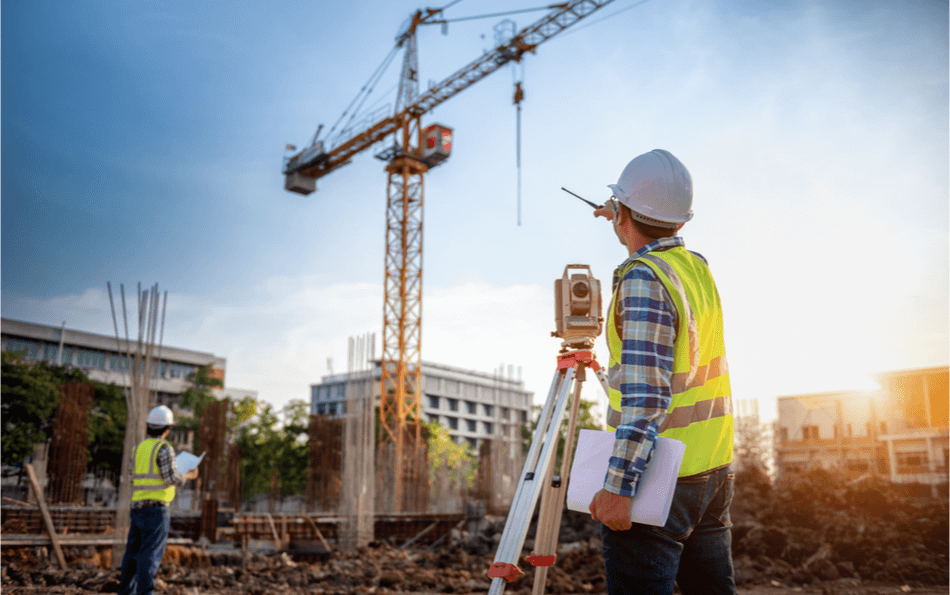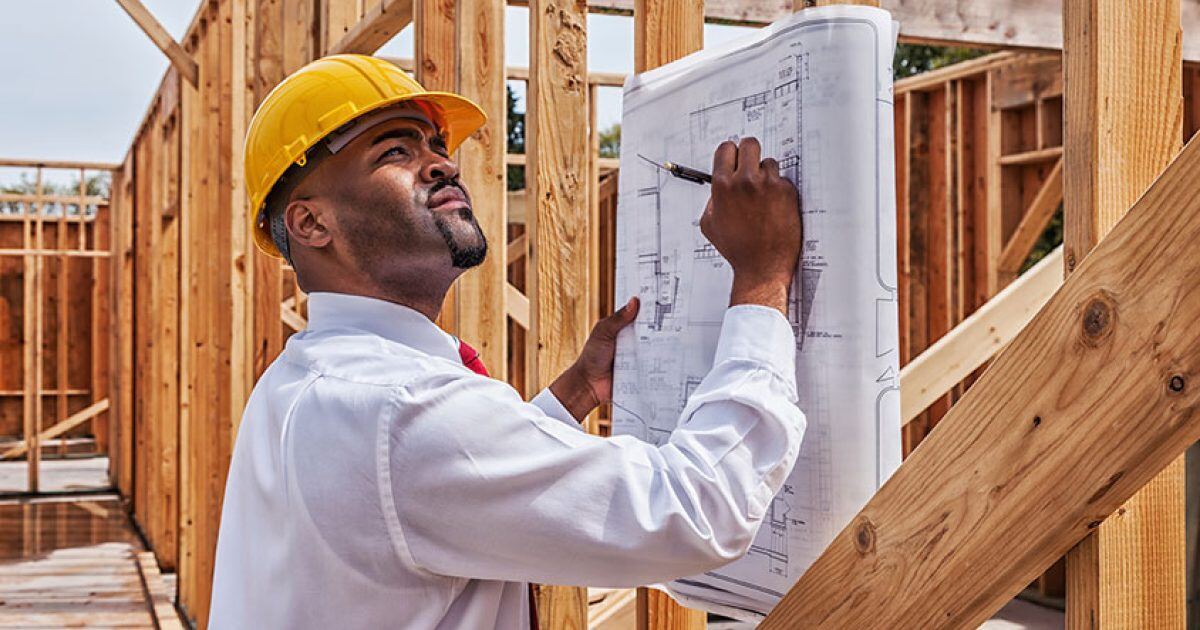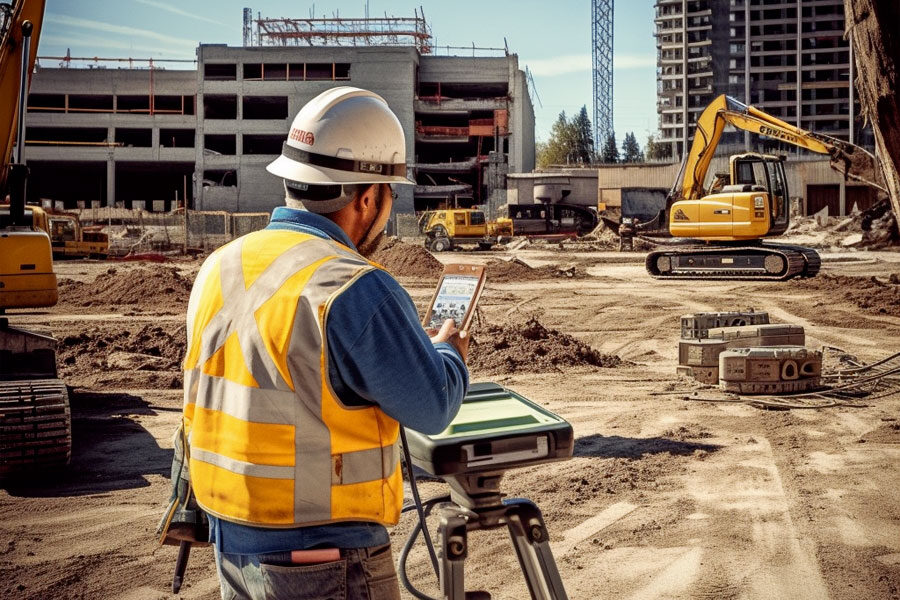
"The construction industry employs more than 70 million people, which is expected to increase to 100 million by 2030", according to a report by Statista.
These statistics indicate the rising scope of work opportunities in the construction sector and the overall growth of the industry. Whether in developing or developed countries, construction and infrastructure development are of paramount importance. They are the backbone of urban civilisations— aiding transportation, housing, amenities, and everyday essentials for people, thus improving their quality of life. So, if you are someone who wants to make a career in the realm of construction, you are setting yourself up for a lucrative and rewarding professional journey.
Understanding the Role of a Construction Inspector

Pursuing a role in the construction industry demands a versatile skill set due to the multifaceted nature of the role. So, let’s explore what a construction inspector does, their responsibilities, skills, and salary.
1. What is Construction Inspection?
As the name suggests, construction inspection is a critical component of the building process, ensuring that all aspects of a construction project adhere to the relevant codes, regulations, and standards. If you are wondering what a construction inspector does, the main goal of construction inspection is to ensure safety, quality, and compliance with design specifications. This involves meticulous examination of materials, workmanship, and the overall structure at various stages of construction.
2. Who is a Construction Inspector?
A construction inspector is a professional responsible for examining construction sites to ensure that buildings, roads, bridges, and other infrastructure projects meet safety, quality, and legal standards, as well as environmental guidelines. They can work for government agencies, private construction firms, or as independent consultants.
3. Scope of Work for Construction Inspectors
The scope of work for construction inspector jobs includes a variety of tasks:
- Understand the drawings and project specifications to identify how the outcome should look.
- Conduct regular site visits to inspect ongoing work and ensure it meets the approved plans and codes.
- Check the quality of materials used in construction to ensure they meet the required standards.
- Ensure that the construction site adheres to safety regulations to prevent accidents and injuries.
- Maintain detailed records of their findings and report any issues or deviations from the plans.
- Work closely with architects, engineers, and contractors to resolve any problems that arise during construction.

4. Skills Needed to be a Construction Inspector
A construction inspector job necessitates the possession of the following technical and soft skills:
- An understanding of local building codes, safety regulations, and industry standards.
- Familiarity with construction methods, materials, and tools.
- The ability to communicate findings and recommendations to various stakeholders.
- The ability to analyse situations and think of solutions for effective project execution.
- Crisis management for emergency or unforeseen situations on site.
- People and resource management.
- Knowledge of cutting-edge technologies like Building Information Modelling (BIM), computational software, and 3D printing for managing large-scale projects.
- Physical stamina for climbing, walking, and standing for extended periods on site.
How to Become a Construction Inspector

To secure a construction inspector job, individuals need to possess specific certifications, degrees, and licences, based on their country of practice. Here are the primary criteria to fulfil and the steps to become a construction inspector.
1. Educational Qualifications
- High School Diploma: A high school certificate is the minimum requirement for entry-level positions.
- Bachelor's Degree: While some employers may hire inspectors with only a high school diploma, many prefer candidates with a bachelor’s degree in fields like civil engineering, construction management, or architecture. These programmes provide a solid foundation in construction principles, building codes, and project management.
- Technical Training: Some candidates may opt for technical schools or community colleges that offer specialised training programmes in construction inspection. These programmes typically cover subjects like construction materials, inspection techniques, and safety standards.
2. Certification and Licensing
In many countries, obtaining a nationally recognised certification for construction inspector jobs is essential. For instance, in the United States, certifications from organisations like the International Code Council (ICC) or the National Institute for Certification in Engineering Technologies (NICET) are highly valued.
Additionally, depending on where you plan to work, you may need to obtain a state or local licence. Licensing requirements vary by location, but they generally involve passing an exam that tests your knowledge of building codes and standards.
Top 5 Training & Certification Courses for Construction Inspectors

The Bureau of Labour Statistics reveals that the United States had 336,000 job openings in the construction industry as of May 2023. So, what gives you an edge over your competition for construction inspector jobs is your skills and the ability to present them appropriately. This is where construction engineer training and certifications step in, enabling candidates to stand out from the crowd.
1. BIM Professional Course by Novatr
The BIM Professional Course is designed to provide in-depth knowledge and practical skills in BIM, which is increasingly important in civil engineering construction inspector jobs.
Course Curriculum
- Understanding the fundamentals of BIM and its significance in the construction industry.
- Hands-on training in leading BIM software like Revit, Primavera, Navisworks, and ArchiCAD.
- Learning about industry standards, protocols, and best practices.
- Techniques for creating and analysing BIM models.
- Collaborative workflows and project management using BIM.
- Real-world case studies and projects to apply learned concepts.
2. Fundamentals of Construction Inspection by the University of Minnesota
This construction inspector certification programme covers the basics of construction inspection, ideal for beginners.
Course Curriculum
- Overview of the construction inspection process and its importance.
- Detailed study of building codes, regulations, and standards.
- Methods and techniques for effective construction inspection.
- Ensuring safety and compliance on construction sites.
- Best practices for maintaining accurate records and reports.
3. Construction Inspector Training Program by VRX Institute
The VRX Institute offers a specialised construction inspector course that prepares individuals for a career in construction inspector jobs.
Course Curriculum
- Basic principles of construction and building processes.
- Detailed inspection procedures for various construction phases.
- Techniques for testing materials and ensuring quality control.
- Comprehensive coverage of site safety protocols and regulations.
- Understanding environmental impact and sustainability in construction.

4. Construction & Building Envelope Inspection by GLOMAX
GLOMAX offers construction inspector classes emphasising the integrity and performance of building exteriors.
Course Curriculum
- Understanding the components and functions of buildings.
- Methods for inspecting buildings and envelopes and identifying defects.
- Studying the performance of materials used in buildings.
- Techniques for analysing thermal performance and moisture intrusion.
- Strategies for repairing and maintaining buildings.
5. Construction Inspection Training Course by USEPA
This construction inspector course offered by the USEPA (United States Environmental Protection Agency) focuses on environmental compliance in construction inspection.
Course Curriculum
- Understanding federal, state, and local environmental regulations.
- Techniques for managing stormwater and preventing pollution.
- Best practices for controlling erosion and sedimentation on construction sites.
- Conducting site inspections for environmental compliance.
- Maintaining accurate environmental compliance records.
In Conclusion
If you want to secure a construction inspector job, it's essential to upskill in new technologies and tools that enhance your proficiency at work. In the near future, processes like BIM, robotics, 3D printing, and digital fabrication will become an integral part of construction inspector job descriptions. This will also unlock doors to better-paying job opportunities in global construction firms.
The BIM Professional Course by Novatr is one of the most promising construction inspector classes for students and professionals who want to take their construction careers to new heights. The curriculum of this construction inspector training includes extensive concepts about BIM modelling, fabrication, concrete and steel modelling, rebarring, schedule creation, and documentation. Additionally, participants get the opportunity to apply their knowledge on RIBA-certified capstone projects under the guidance of industry experts who mentor them throughout the course duration. Further making the course outcome more tangible, Novatr provides placement assistance to learners, allowing them to seek construction inspector jobs in the international construction market.
Explore the course today.
Check out our Resources page to learn about the latest developments in the built environment.
Was this content helpful to you











